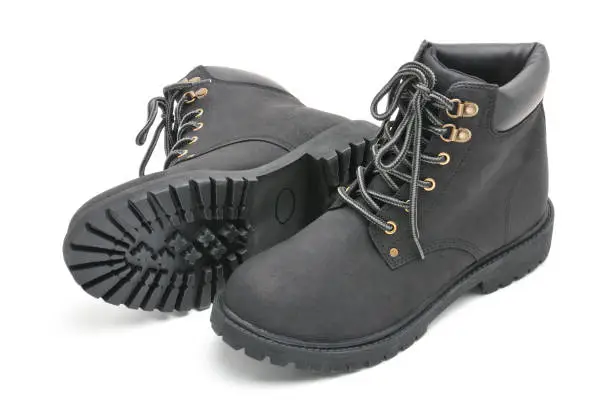We’re going to delve deep into the world of footwear, answering the question, “How much do shoes weigh?” So, let’s lace up and step into the fascinating realm of shoe weights. Walking through life, one step at a time, shoes play an integral role in our daily existence. Have you ever wondered about the weight of the shoes that you wear?
Whether you’re an avid shoe collector, a fitness enthusiast, or just someone with a curious mind, understanding the weight of shoes can offer intriguing insights into design, comfort, and functionality.
Also Visit: How to Tighten Hey Dude Shoes
How Much Do Shoes Weigh?
When it comes to the weight of shoes, there’s no one-size-fits-all answer. The weight of shoes can vary significantly depending on several factors, including the type of shoes, materials used, and intended purpose. Here’s a closer look at different types of shoes and their average weights:
Athletic Shoes:
Athletic shoes are designed for various sports activities, and their weight can vary based on their purpose. Running shoes, for instance, are generally lightweight to enhance performance. On average, a pair of running shoes weighs around 9 to 12 ounces (255 to 340 grams).

Casual Shoes:
Casual shoes, such as sneakers and everyday footwear, strike a balance between comfort and style. These shoes typically weigh between 10 to 14 ounces (283 to 397 grams) per pair, depending on the design and materials.
Dress Shoes:
Dress shoes are known for their sophisticated appearance and may incorporate leather and other luxurious materials. The weight of dress shoes can vary, but they generally weigh between 14 to 18 ounces (397 to 510 grams) per pair.

Boots:
Boots come in various styles, from ankle boots to heavy-duty work boots. The weight of boots is influenced by their intended use. For instance, hiking boots designed for rugged terrains can weigh between 1.5 to 3 pounds (680 to 1361 grams) per boot.
High Heels:
High heels are synonymous with elegance, but their weight can be surprising. On average, a pair of high heels can weigh around 2 to 3 pounds (907 to 1361 grams), with variations based on heel height and materials.
Sandals:
Sandals are designed for breathability and comfort, and they tend to be lighter than other types of shoes. The weight of sandals ranges from 6 to 10 ounces (170 to 283 grams) per pair.

Exploring the Factors Affecting Shoe Weight
The weight of shoes is not solely determined by their type; various factors contribute to their overall weight. Let’s take a closer look at these factors:
Materials Used:
The choice of materials significantly impacts the weight of shoes. Shoes made from lightweight materials like mesh, synthetic fabrics, and EVA foam tend to be lighter than those crafted from leather or rubber.
Sole Thickness:
Thicker soles, often found in athletic or work shoes, can contribute to increased shoe weight. The thickness of the sole is designed to provide cushioning and support, but it can also add to the overall heft of the shoe.

Features and Technology:
Modern shoes often come equipped with advanced features and technology for enhanced comfort and performance. While these innovations can improve the overall shoe experience, they may also add to the weight.
Check Out: How to Make Shoes Non-Slip?
Design Complexity:
Intricate designs, embellishments, and hardware can contribute to the weight of dress shoes and high heels. While these elements enhance aesthetics, they also impact the overall mass of the shoe.
Conclusion
In the world of shoes, weight plays a crucial role in determining comfort, performance, and style. From lightweight running shoes to elegant high heels, every type of footwear has its unique weight characteristics. Understanding the factors that contribute to shoe weight can help you make informed choices based on your lifestyle and preferences. So, the next time you slip into a pair of shoes, you’ll have a newfound appreciation for the intricate balance between form and function.
Frequently Asked Questions
Are lighter shoes always more comfortable?
Not necessarily. While lighter shoes may be more comfortable for activities that require agility and speed, they might lack the necessary support for activities that demand stability and cushioning.
Can shoe weight affect my posture?
Yes, the weight of your shoes can influence your posture and gait. Shoes that are too heavy may lead to improper alignment and discomfort during prolonged wear.
Do heavier shoes last longer?
Not always. The longevity of shoes depends on factors such as material quality and construction. Some lightweight shoes are built to be durable, while heavier shoes may wear out faster if not properly designed.





![Can I Wear High Heels After Bunion Surgery? [Health Care]](/uploads/can-i-wear-high-heels-after-bunion-surgery.jpg)
![What Shoes Are Best For Working At A Bar? [Comfort & Safety]](/uploads/what-shoes-are-best-for-working-at-a-bar.jpg)
